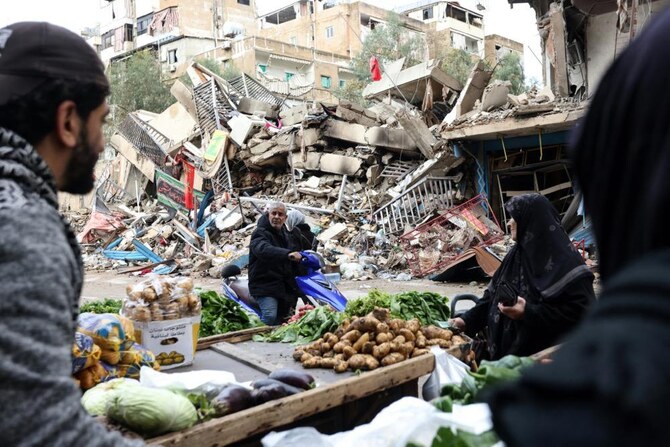TUNIS: Since Tunisia’s president announced a crackdown on illegal immigration last week using language the African Union denounced as racialized, Malian construction worker Mohamed Kony has been evicted from his apartment and sacked from his job.
Unemployed, homeless and without legal residency, he now fears he will face the fate of several of his friends who have been attacked on the street.
“I am confused and worried,” said Kony, 32, who has lived in Tunis for five years and appeared well liked in his neighborhood, where Tunisian residents said they enjoyed his cheerful demeanour and often employed him for small repair jobs.
“I can’t believe we are a problem here,” he said, his eyes skipping to each end of the road in case of a police car.
Kony’s problems began last week, when President Kais Saied said there had been a conspiracy to change Tunisia’s racial makeup, ordering security forces to stop all illegal immigration and to expel any migrants living in Tunisia illegally.
“The undeclared goal of the successive waves of illegal immigration is to consider Tunisia a purely African country that has no affiliation to the Arab and Islamic nations,” he said.
Saied’s speech — repeating the “great replacement” theory that political elites are replacing native inhabitants with immigrant supporters — was called “shocking” by the African Union and praised by French far-right politician Eric Zemmour.
When Saied issued a second statement last week, he denied being racist and said he only wanted police to implement Tunisian law, but he repeated the idea that there had been a conspiracy to change Tunisia’s demographics.
Social media has, meanwhile, filled with accounts by darker-skinned people in Tunisia, including migrants with and without valid visas, African students and Black Tunisians, of ill treatment and fear.
They have described detentions for not carrying identity papers, insults, stone throwing, evictions and job losses.
The Tunisian Forum for Economic and Social Rights (FTDES), a group that works with migrants, said it had documented hundreds of arbitrary arrests and hundreds of evictions without notice.
More disturbingly, it said it had documented some violent assaults, including with knives, that police had been slow to respond to. The Interior Ministry has said it will comply with all national laws and international treaties with full respect for human rights.
Outside the Ivory Coast’s Tunis embassy, dozens of the country’s citizens stood this week, seeking repatriation.
“After the president’s speech, we were attacked. We are afraid. We were kicked out of the house,” said one, Berry Dialy Stephan.
Another, Foufana Abou, said people in his district had insulted and attacked him.
“They threw stones and pieces of wood at us,” he said. “Why? We are all Africans!” he added.
CRACKDOWN
Saied’s critics say the crackdown is consistent with his increasingly fiery, conspiracy-laden rhetoric as he pursues a parallel crackdown on political opponents, accusing them of plotting against the state with foreign backing.
Both were preceded by social media campaigns among online groups of Saied supporters that his critics say were increasingly intertwined with his approach to rule.
It also comes at a difficult time for the president as ultra-low turnout in parliamentary elections casts doubt over popular support for his political program after seizing most powers in 2021, and amid an economic crisis.
“The presidential campaign aims to create an imaginary enemy for Tunisians to distract them from their basic problems,” said Ramadan Ben Amor, a spokesperson for FTDES.
After racially charged language by some media commentators, the journalists syndicate and the independent media regulator both responded by urging press to be more careful in their language to avoid racist incitement.
Official figures say there are 21,000 migrants from sub-Saharan African countries in Tunisia. FTDES said the true figure was likely higher, but not more than 50,000.
Tunisia introduced visa-free travel for many African countries over the past decade. Getting a residency permit can be very difficult.
Many migrants in Tunisia aim to cross illegally to Europe but cannot afford the hundreds of dollars to get to Italy — a journey also taken by growing numbers of Tunisians.
Mamuella, an Ivorian woman who has stayed inside her apartment in Tunis for over a week for fear of arrest, said Tunisians had no reason to fear her or her compatriots.
“We just want to arrive on the other side of the Mediterranean where we can find opportunity,” she said.

































